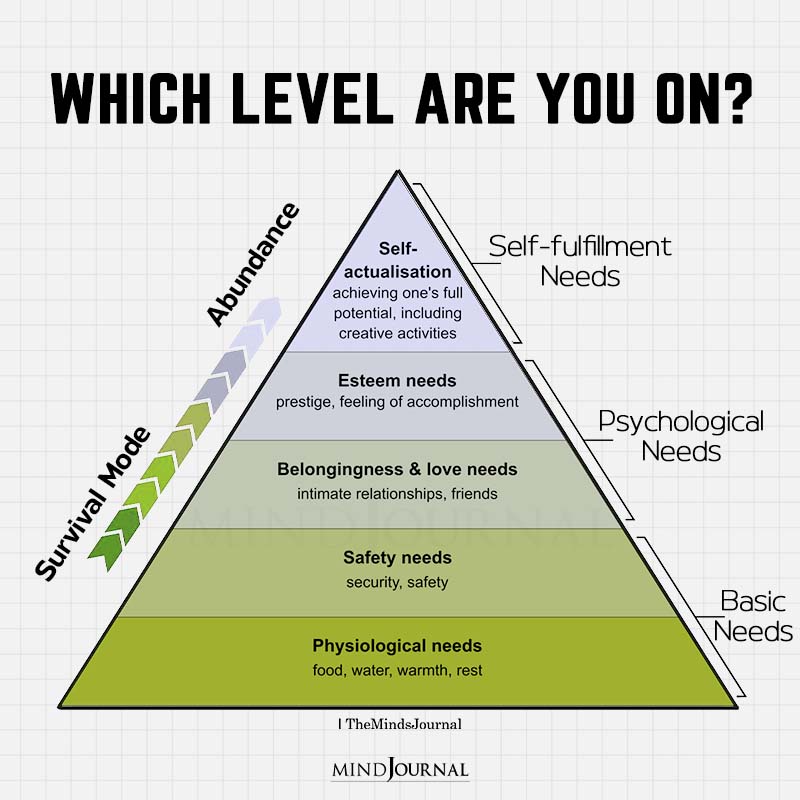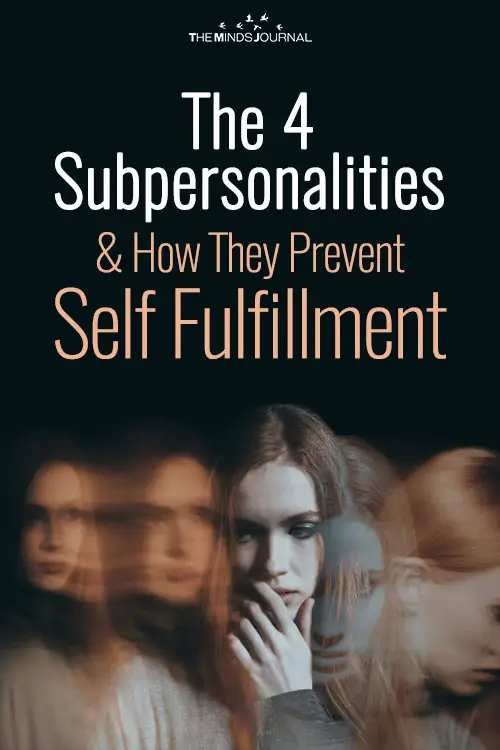Did you know that every human being out there, including you, has 4 subpersonalities within them? And what do these 4 subpersonalities have in common? They love to make you doubt yourself and instill anxiety and fear in your heart.
Our inner voices. They’re incessant, subtle, and ever-present. Often we’re unaware of the internal dialogues that go on inside of ourselves, the self-talk that plays repetitively like broken records inside our minds. Unfortunately, however, this internal dialogue frequently consists of self-derisive and self-sabotaging thoughts and beliefs about ourselves and our capabilities.
It’s not surprising then, that many of us feel paralyzed and exasperated when we try to self-actualize and self fulfill ourselves creatively. We can’t seem to accomplish anything without constant internal interjections of criticism, hopelessness, and worry. Our days are garnished with thoughts such as “I’m useless”, “I’m not made for this”, “I could have done that better”. And consequently … we feel exhausted and defeated – by ourselves!
But we weren’t made to be our own worst enemies. Where does such doubtful and self-defeating negativity come from exactly? And how can we live more self-fulfilled lives?
Related: The 5 Types of Self-Talk Your Brain Likes Best
The Four Subpersonalities
I first discovered the idea of the Four Subpersonalities 3 years ago, in Edmund Bourne’s book about Anxiety & Phobia. At that time I was struggling to overcome what I believed was a bad case of social anxiety disorder.
Since then, I have largely overcome SA by becoming mindful of my negative self-talk – and the Four Subpersonalities that exist in differing degrees in all of us.
These Subpersonalities are:
- The Worrier
- The Critic
- The Victim
- The Perfectionist
The one thing these Four Subpersonalities share is the ability to induce anxiety. They voice the different kinds of negative dialogues that occur inside each one of us.

How They Cripple Us
Below is a list of each subpersonality dissected and put under a microscope. Consider this question: which one is the most predominant in you?
1. The Worrier
Description: This person tends to catastrophize and imagine the worst-case scenarios promoting anxiety, fear, and even panic attacks within themselves. They tend to always be on edge, watching for signs of trouble.
When those signs of trouble arise, the worrier tends to:
- Anticipate the worst.
- Overestimate the chances of something horrible happening.
- Fantasize about the worst possible catastrophes occurring.
Key Expressions: “What if…”
Examples: Typical dialogue includes thoughts like: “What if they hear me stutter and think I’m an idiot – and don’t give me the job?!”, “What if he doesn’t call me, and I feel distraught and shattered?”, “What if I put my work on public display and everyone laughs at me, thinking I’m a failure?”
Related: 7 Inner Archetypes That Cripple Your Confidence and Self-Respect
2. The Critic
Description: This person is extremely judgmental of themselves. They put themselves down constantly for any flaw, limitation, or failure they perceive in themselves. They fall into the mental trap of overemphasizing their weaknesses and filtering out their strengths.
Key Expressions: “Can’t you ever do anything properly?”, “Why do you always do that?”, “That was stupid!”, “Should be…”
Examples: “There are so many flaws in this novel of mine, I’m such a poor writer!”, “B+? I could have done way better!”, “I’m such a weak person compared to _____. I should be better.”
3. The Victim
Description: This subpersonality creates helpless and hopeless feelings. It is that part of you that believes you have an inherent defect that makes you unworthy and incapable. It tells you that nothing will ever change, and circumstances are irreversible and incurable. The Victim consequently places obstacles and barriers between themselves and their goals, depriving themselves of self-satisfaction.
Key Expressions: “I’ll never be able to …”, “I can’t”.
Examples: “It’s too late to do that now … I’m too tired/old/unpracticed/unskilled”, “I’ll never be able to get a pay rise, so what’s the point of trying?”, “I can’t do that – it’s too hard for me”.

4. The Perfectionist
Description: These people constantly push themselves to do bigger and better, always telling themselves that they aren’t doing well enough. They derive their self-worth from external achievements, driving themselves with the mantra that they “should do” this or “should be” that. When they fail to do something that doesn’t conform to their high standards, they are intolerant and self-derisive. The Perfectionist does not forgive or forget, creating great pressure and anxiety for themselves.
Key Expressions: “I must”, “I should”, “I have to”.
Examples: “I should be competent – I must get this done well”, “I have to always be selfless and caring”, “I should be the best at this recital – I have to do well”.
Related: 10 Signs You’re A Perfectionist and How To Overcome
How To Free Yourself & Find Self Fulfillment
Which subpersonality was the most dominant in you? It could have been two of them equally – this is normal. Or it could have been just one like me (The Perfectionist).
Now that you have an idea of the Four Subpersonalities, you may be pondering the best course of action. As prolific author Ray Bradbury suggested in his book Zen in the Art of Writing: don’t think – just do! This is one approach that requires no mental action or analysis.
However, some find this approach ambiguous, and as to how it is done, whether through meditation or some other self-prescribed method, it is entirely up to your own devices. However, there are other ways to counteract the negative self-talk of our subpersonalities. These come with 1) being mindful of your thoughts, and 2) interrupting your thoughts with any of the following questions:
- 1. Are you being objective?
- 2. Is this always true?
- 3. Was this true in the past?
- 4. Are you looking at the big picture – or simply focusing on the details?
- 5. What are the objective odds of this happening? Why? Why not?
- 6. What is the factual evidence for this?
- 7. Truthfully, what’s the worst that could happen? Why is this so bad? How would you deal with this?
When trying to free yourself from the poison of your subpersonality/s, the goal is to a) challenge, b) look for evidence, and c) maintain an objective state of mind. The biggest creator of pain is subjectivity. Once you use these 7 questions to challenge your subpersonality/s, you will almost certainly find how little truth your self-limiting talk has in reality.
Related: Do You Have a Critical Inner Voice? Learn How to Calm The Monkey Mind
If this article inspired any thoughts in you, I’d love to hear about them below.
By Aletheia Luna
Source - Loner Wolf










Leave a Reply
You must be logged in to post a comment.